Going back to the basics
Living a holistic life requires a mind shift, opting for fresh rather than pre-packaged consumables and foods.
Henriette Lamprecht – Much has been written about the detrimental affect toxic pollutants caused by plastic pollution have on humans, animals and plants. Taking hundreds if not thousands of years for plastic to break down, the damage to the environment is long-lasting.
Affecting all organisms in the food chain from tiny specs like plankton through to whales, toxins work their way up the food chain when plastic is ingested, even present in the fish people eat.
According to the website nonplasticbeach.com only 14% of plastic packaging used globally makes it way to recycling plants and only 9% are actually being recycled. A third is left in fragile ecosystems, while 40% ends up in landfills.
Take the plastic water bottle which has been lying in the sun in your car for days. Or the food you warm up in your microwave covered in plastic, says Brigitte Reissner.
In both cases tiny pollutants end up in your body.
About two years ago Brigitte became more aware of the impact of plastics not only on one’s health, but the world around her. It was time to change not only her own habits, but to try and create a world and an opportunity to change not only the present but create a better, more plastic free world.
“I came to realise most of the things we buy, if not all, are wrapped in plastic and options are limited to do away with containers that would eventually only end up on a garbage dump. Every piece of plastic that has ever been produced on earth, is still here. It just degenerates into microplastics.
Passionate about making a change Brigitte found at first people were open to the idea of reuse and recycle, but got demotivated quite quickly.
“If you want to change too many things at once, you get demotivated very quickly and lose motivation after a while.”
Begin with small steps, making sure you use all the products in your closets, says Brigitte.
“Start with your bathroom and first finish all the products like shampoo or face cream before you buy a new product. Refill and reuse these bottles rather than throwing it in the dustbin.”
She admits it is more convenient to rather go to a “normal” grocery store without the hassle of getting the right container to fill.
“It’s convenient to go to a normal shop and just buy everything from the shelf. It takes effort to change.”
The habit of reusing and refilling more environmentally friendly containers has a reputation of being too expensive, Brigitte admits, making it difficult for people to commit.
But, she says, people do want to change and are becoming more health conscious, realising they have to go back to basics.
“They realise the change is not only for us, but for the next generation.”
Even if every person just start with a small change, it still has a huge impact not only on the world and planet in general, but on your society, your city and your country, says Brigitte.
A lot of people start with refilling their spices, using their old bottles.
“Bring your old bottle and shop with your senses, not only seeing the wonderful colours, but also smelling and taking in the wonderful scents. In a normal shop you don’t really experience what you buy, you just take it from the shelf.”
We are bombarded by advertisements and jingles, dragging us in, but just return to the basics, says Brigitte.
“Keep it real and basic. Return to fresh food like nuts, lemon and spices, it will make a huge difference.”
Don’t simply throw away empty containers, but rather try and reuse it, especially in the case of glass containers.
“Use what you have and when done, rather opt to refill.”
The change in the way she looks at the world around her, also led to a change in her own home, says Brigitte.
“I started to ask myself ‘do I really need it’ if I want to buy something. Is it a want or a need? It’s a total mind shift, but it doesn’t mean you can’t still lead a significant life.”
What is important to know when you start a lifestyle of opting for the basics and focusing on reuse, is the matter of quality of quantity, says Brigitte.
“Rather buy something of high quality that will last a long time, than buying the same thing every other year. Yes, you will pay more, but in the end it is something you can use for much longer.”
She admits reusing containers for products in the cold chain, including milk and yoghurt, is difficult.
“Milk in particular is difficult, but still possible. A lot of these products are available directly from the farmer, albeit in plastic containers which you can reuse.”
Shift your mind, Brigitte suggests. Ask yourself if what you want to buy, is really needed, opt to choose and make the healthier version with fresh produce.
“It all starts with us.” – [email protected]; Facebook – Zero Waste Store Namibia
Affecting all organisms in the food chain from tiny specs like plankton through to whales, toxins work their way up the food chain when plastic is ingested, even present in the fish people eat.
According to the website nonplasticbeach.com only 14% of plastic packaging used globally makes it way to recycling plants and only 9% are actually being recycled. A third is left in fragile ecosystems, while 40% ends up in landfills.
Take the plastic water bottle which has been lying in the sun in your car for days. Or the food you warm up in your microwave covered in plastic, says Brigitte Reissner.
In both cases tiny pollutants end up in your body.
About two years ago Brigitte became more aware of the impact of plastics not only on one’s health, but the world around her. It was time to change not only her own habits, but to try and create a world and an opportunity to change not only the present but create a better, more plastic free world.
“I came to realise most of the things we buy, if not all, are wrapped in plastic and options are limited to do away with containers that would eventually only end up on a garbage dump. Every piece of plastic that has ever been produced on earth, is still here. It just degenerates into microplastics.
Passionate about making a change Brigitte found at first people were open to the idea of reuse and recycle, but got demotivated quite quickly.
“If you want to change too many things at once, you get demotivated very quickly and lose motivation after a while.”
Begin with small steps, making sure you use all the products in your closets, says Brigitte.
“Start with your bathroom and first finish all the products like shampoo or face cream before you buy a new product. Refill and reuse these bottles rather than throwing it in the dustbin.”
She admits it is more convenient to rather go to a “normal” grocery store without the hassle of getting the right container to fill.
“It’s convenient to go to a normal shop and just buy everything from the shelf. It takes effort to change.”
The habit of reusing and refilling more environmentally friendly containers has a reputation of being too expensive, Brigitte admits, making it difficult for people to commit.
But, she says, people do want to change and are becoming more health conscious, realising they have to go back to basics.
“They realise the change is not only for us, but for the next generation.”
Even if every person just start with a small change, it still has a huge impact not only on the world and planet in general, but on your society, your city and your country, says Brigitte.
A lot of people start with refilling their spices, using their old bottles.
“Bring your old bottle and shop with your senses, not only seeing the wonderful colours, but also smelling and taking in the wonderful scents. In a normal shop you don’t really experience what you buy, you just take it from the shelf.”
We are bombarded by advertisements and jingles, dragging us in, but just return to the basics, says Brigitte.
“Keep it real and basic. Return to fresh food like nuts, lemon and spices, it will make a huge difference.”
Don’t simply throw away empty containers, but rather try and reuse it, especially in the case of glass containers.
“Use what you have and when done, rather opt to refill.”
The change in the way she looks at the world around her, also led to a change in her own home, says Brigitte.
“I started to ask myself ‘do I really need it’ if I want to buy something. Is it a want or a need? It’s a total mind shift, but it doesn’t mean you can’t still lead a significant life.”
What is important to know when you start a lifestyle of opting for the basics and focusing on reuse, is the matter of quality of quantity, says Brigitte.
“Rather buy something of high quality that will last a long time, than buying the same thing every other year. Yes, you will pay more, but in the end it is something you can use for much longer.”
She admits reusing containers for products in the cold chain, including milk and yoghurt, is difficult.
“Milk in particular is difficult, but still possible. A lot of these products are available directly from the farmer, albeit in plastic containers which you can reuse.”
Shift your mind, Brigitte suggests. Ask yourself if what you want to buy, is really needed, opt to choose and make the healthier version with fresh produce.
“It all starts with us.” – [email protected]; Facebook – Zero Waste Store Namibia



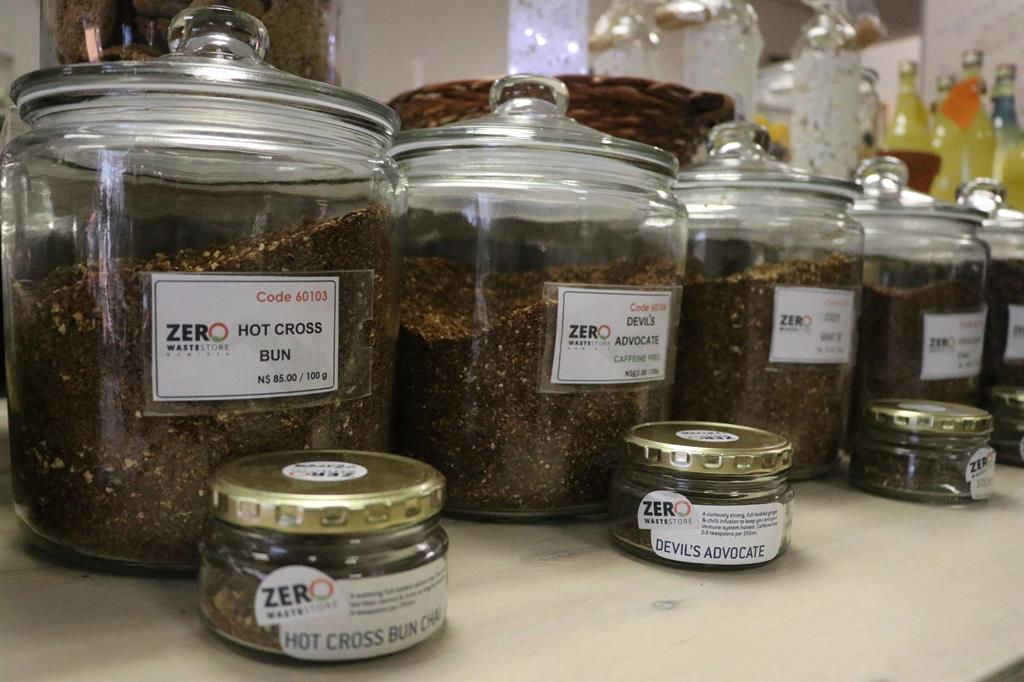
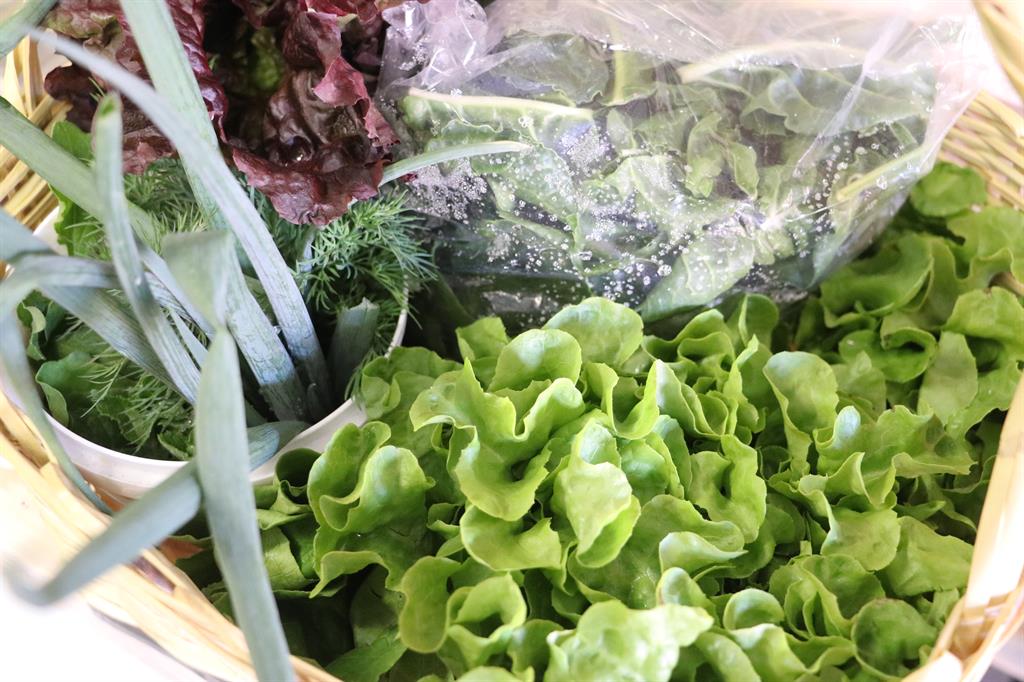
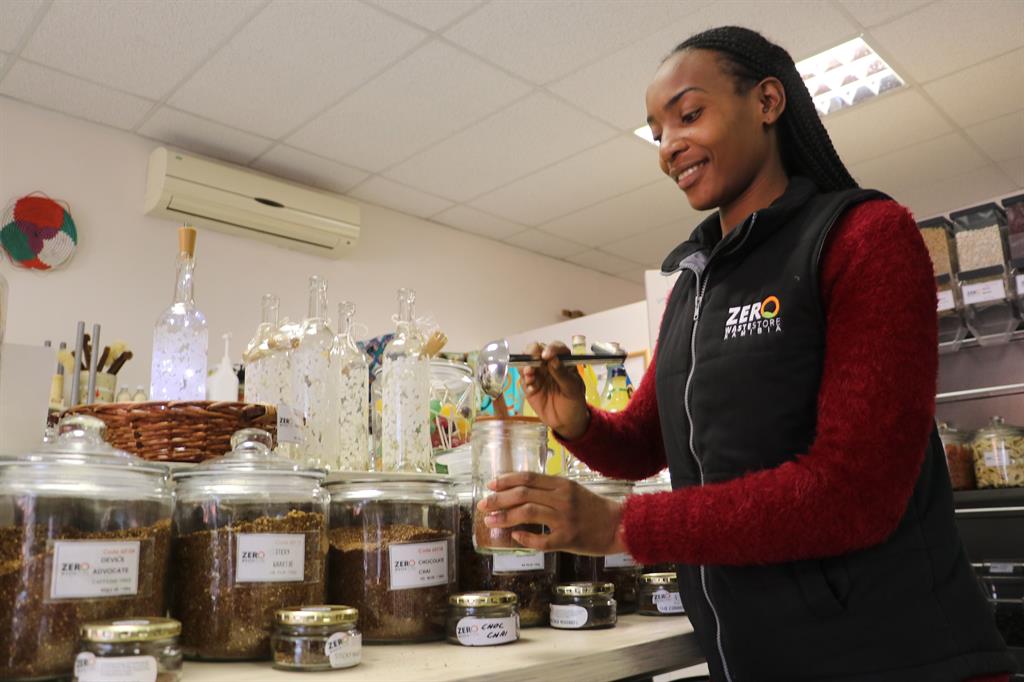
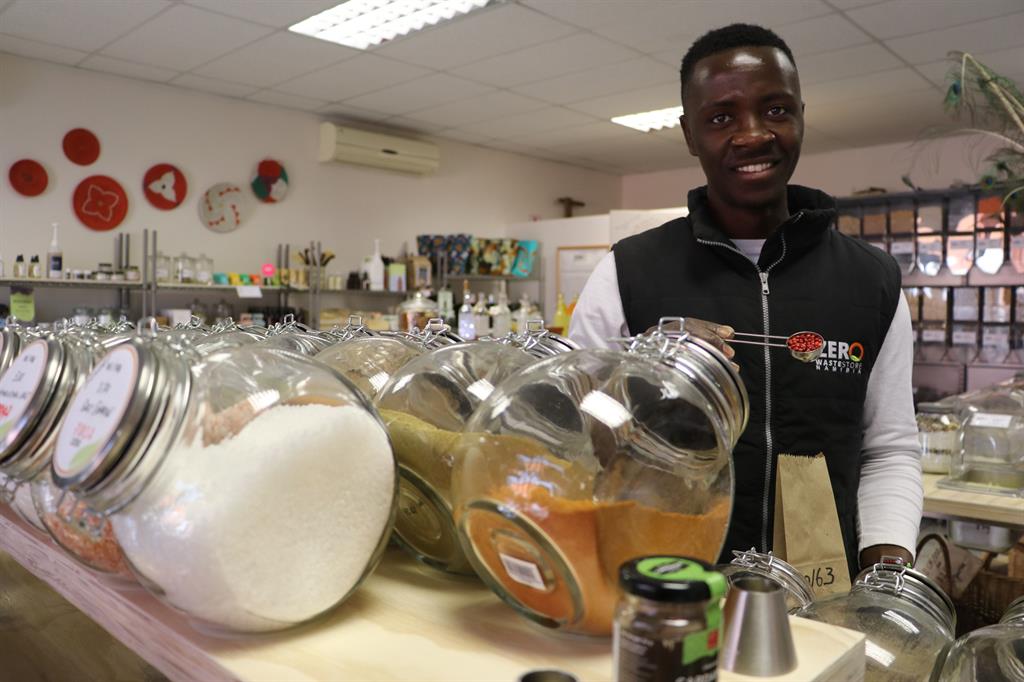
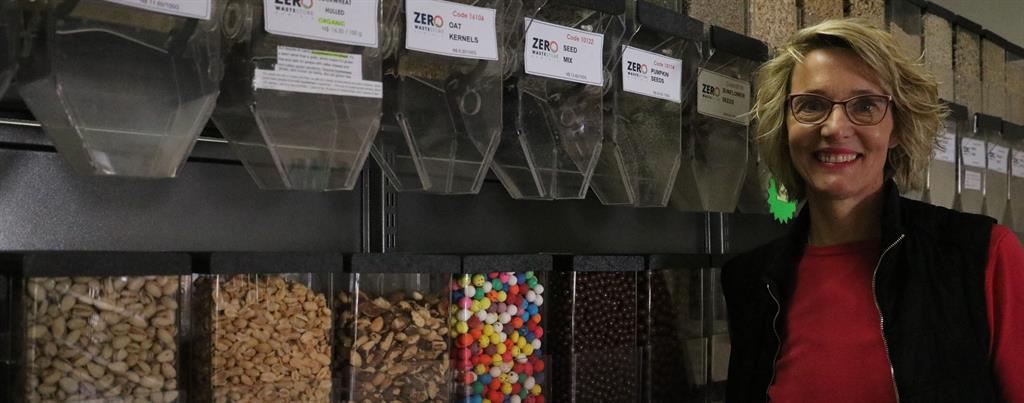
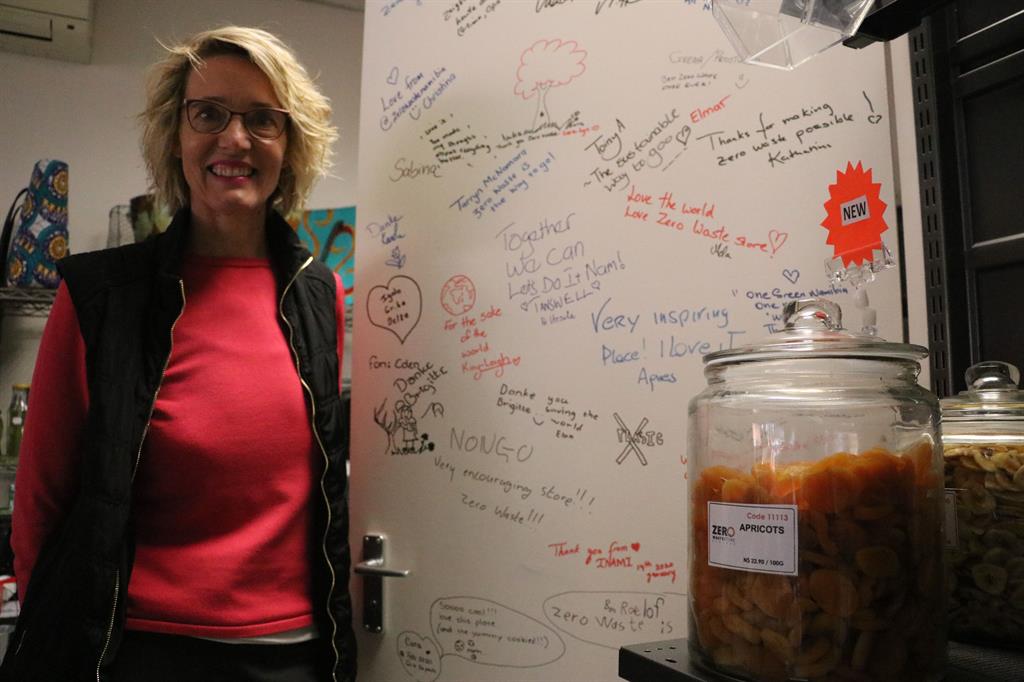
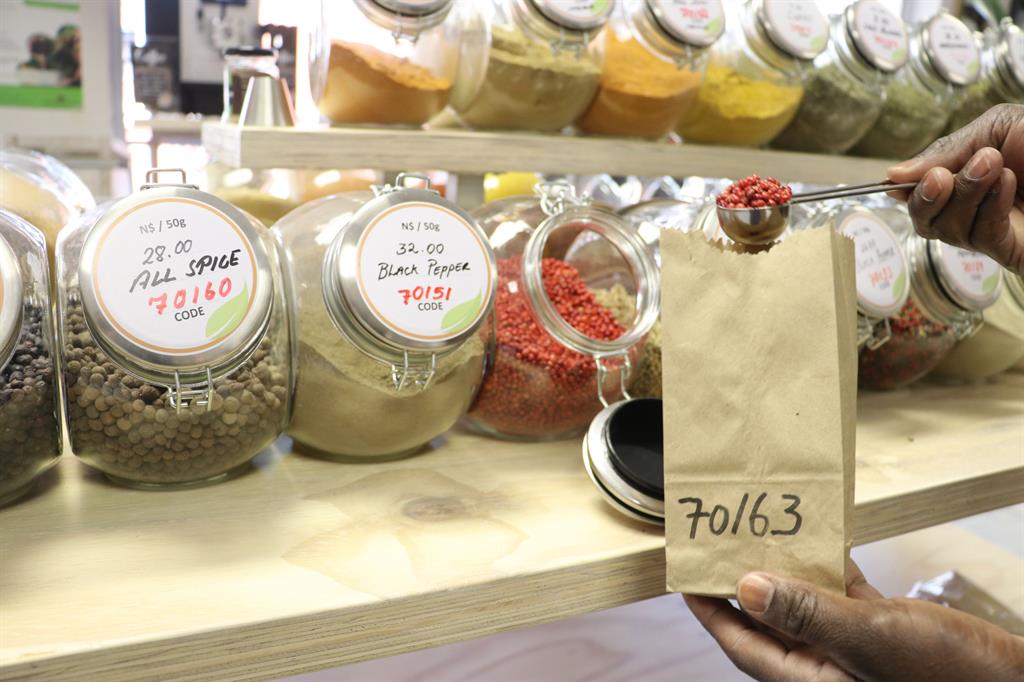


Kommentar
Allgemeine Zeitung
Zu diesem Artikel wurden keine Kommentare hinterlassen